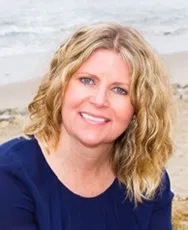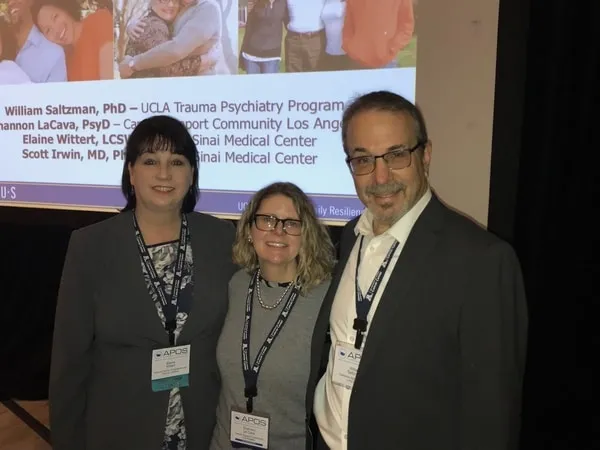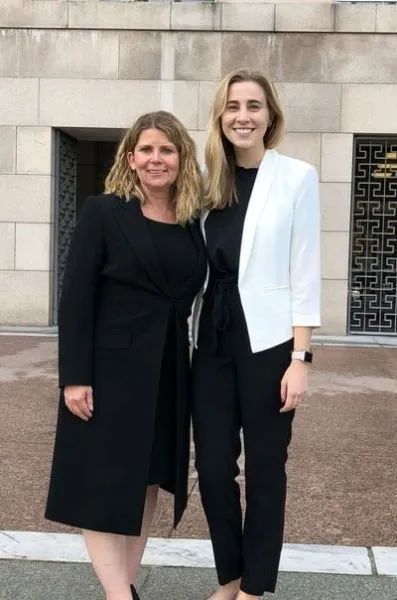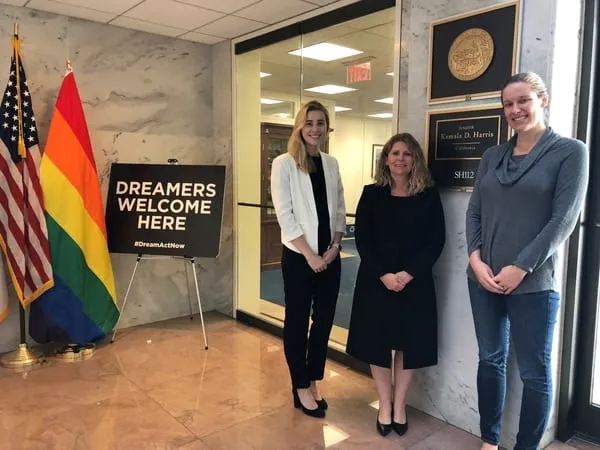Advocate Spotlight: Shannon La Cava


Each month, the Cancer Policy Institute profiles advocates who have been engaged in advocacy in their home state, their community, with elected officials, and more. Read on to learn more about our featured advocate for the month of December and her recent dive into advocacy. If you are interested in learning more about policy, advocacy, and ways to get involved, sign up to be a part of the Grassroots Network!
Shannon La Cava, PsyD, Los Angeles, California
Tell us a little bit about yourself.
I am a Clinical Psychologist and the Program Director at Cancer Support Community Los Angeles.
How did you get connected with the Cancer Support Community?
Years ago my aunt was diagnosed with pancreatic cancer. She died only a short three months after her diagnosis. During those three months, I spent most of time by her side and it was at that time she called me “her rock.” The time I spent with my aunt was a catalyst for me to enter graduate school. In my initial entrance application I highlighted my desire to work with families experiencing a diagnosis of cancer. During my masters and doctoral education in Clinical Psychology, I completed externships in the Hematology and Oncology Department at Children’s Hospital Los Angeles. I continued my work with children in a neuropsychological assessment setting for my internship and post-doctoral fellowship. At that time, I missed the oncology component of care and I found Cancer Support Community Los Angeles, where I was able to volunteer as a consultant for their Kids Support pilot program. At the end of my fellowship I was approached by CSCLA to apply for the Program Director role. To me, it was synchronicity. I have been working in this role for three years and I am so happy to be a part of a community of individuals, families, volunteers, and staff that share my desire to provide relief to people with cancer.

Did you have experience with advocacy in any capacity before joining CSC? (e.g. legislator meetings, hosting educational events, writing letters or calling, writing pieces for media outlets, posting on your personal Facebook, sharing information with your community, etc.)
Outside of following a “closed mouth is never fed” philosophy as a professional and mentor, I have not had an opportunity to work formally in an advocacy capacity. I welcomed the opportunity to collaborate with the Cancer Policy Institute at Cancer Support Community.
In what ways have you been involved with advocacy with CSC?
I had my first visit to Capitol Hill in November 2018 with Shelby Berger of the CPI. I was fortunate to meet with representatives of Senator Kamala Harris, Senator Diane Feinstein, and Congresswoman Karen Bass. It was thrilling to see our democracy in action and I am passionate about continuing conversations with leaders in our country to advocate for the needs of the individuals and families we support.
Is there one issue you are particularly passionate about?
The idea of caring for the whole person is reflected in my research and the programs we implement at Cancer Support Community Los Angeles. Advocating for the social and emotional needs of patients, caregivers, children, and adolescents – where their voice may not be heard, or they do not know what to ask for – is my primary goal. During our Capitol Hill visit, we received genuine and heart-felt responses from our hosts because our visions of supporting basic emotional, psychological, family-oriented needs, in general populations and areas experiencing disparities in healthcare, were aligned.

What is one tip or piece of advice you’d like to share with others who are interested in becoming an advocate?
Do it! Advocacy is a powerful tool in supporting those in need and, although challenging, it can lead to personal joy and gratitude.
Tell us something fun about yourself—any hobbies, interests, or fun facts?
I am an only child and always wanted to be an aunt, because of the very cherished relationship I had with my aunts. As luck would have it, my husband is one of eight children and I spend much of my time with nieces and nephews – going to movies, museums, and ice cream parlors.